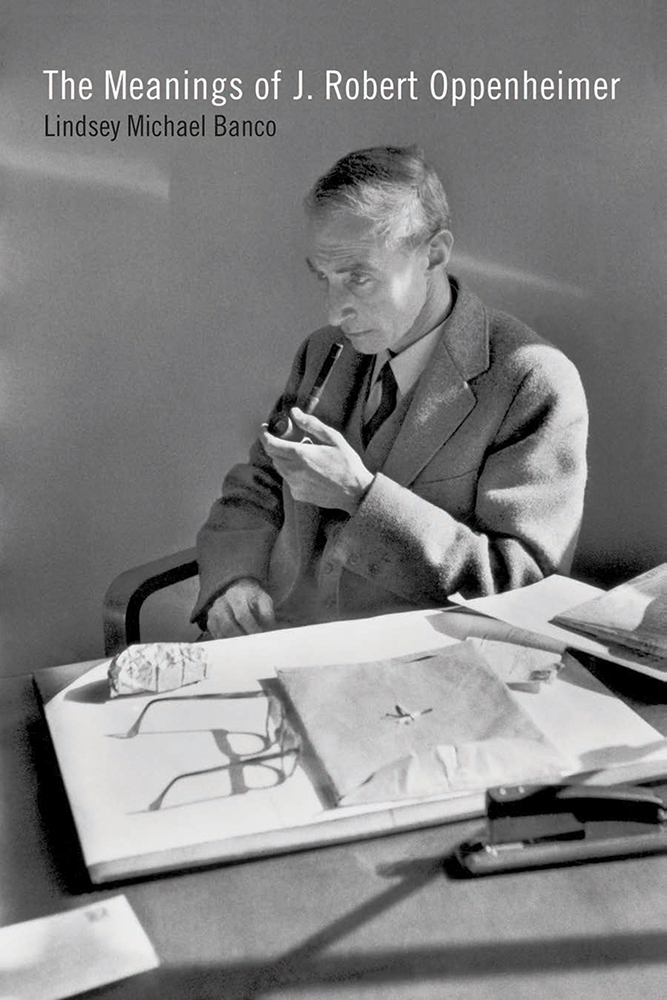He called the first atomic bomb “technically sweet,” yet as he watched its brilliant light explode over the New Mexico desert in 1945 in advance of the black horrors of Hiroshima and Nagasaki, he also thought of the line from the Hindu epic The Bhagavad Gita: “I am become Death, the destroyer of worlds.” Physicist J. Robert Oppenheimer, the scientific director of the Manhattan Project, the single most recognizable face of the atomic bomb, and a man whose name has become almost synonymous with Cold War American nuclear science, was and still is a conflicted, controversial figure who has come to represent an equally ambivalent technology. In the decades since the successful detonation of the world’s first atomic bomb under his supervision, Oppenheimer has been portrayed as an emotionless and soulless man of science, an almost mystical Byronic visionary, a popular celebrity, an incarnation of the horrors of nuclear warfare, the embodiment of the American dream, and a Communist threat to the American way of life. In turn, he has been used to represent abstract ideas such as patriotism, ingenuity, intelligence, masculinity, and even science itself.
Following the seventieth anniversary of the Manhattan Project, The Meanings of J. Robert Oppenheimer examines how he has been represented over the past several decades in biographies, histories, fiction, comics, photographs, film, television, documentaries, theater, and museums. Lindsey Michael Banco gathers an unprecedented group of cultural texts and seeks to understand the multiple meanings Oppenheimer has held in American popular culture since 1945. He traces the ways these representations of Oppenheimer have influenced public understanding of the atomic bomb, technology, physics, the figure of the scientist, the role of science in war, and even what it means to pursue knowledge of the world around us. Questioning and unpacking both how and why Oppenheimer is depicted as he is across time and genre, this book is broad in scope, profound in detail, and offers unique insights into the rise of nuclear culture and how we think about the relationship between history, imagination, science, and nuclear weapons today.
“Robert Oppenheimer is endlessly fascinating. His life engaged the most profound issues of our time: the revolution in physics, the Great Depression, the Popular Front, the development of nuclear weapons, and the corrosive influence of the anti-Communist hysteria of the 1950s. Lindsey Banco expands our understanding of his influence by investigating his ‘meaning’ to our political culture. It is another important contribution to the Oppenheimer Library.”—Martin J. Sherwin, coauthor, American Prometheus: The Triumph and Tragedy of J. Robert Oppenheimer, winner of the 2006 Pulitzer Prize for Biography
“The Meanings of J. Robert Oppenheimer is an intriguing book about an important issue and an equally important person. It complements and builds on existing scholarship on Oppenheimer and the atomic bomb, and is well worth reading for anyone with an interest in Cold War America, the Manhattan Project, and the enigmatic figure that is Oppenheimer.”—Allan M. Winkler, Miami University of Ohio
“Oppenheimer has always been the ghostly presence behind nuclear culture in the United States, and Banco has done him a great service by thinking about him in all his ambivalent and paradoxical brilliance. Far afield from conventional biographies, The Meanings of J. Robert Oppenheimer explores the man and the idea of the man as a series of dualities, showing how a retiring physicist who went to the desert wound up setting the terms for so many aspects of postwar culture. A unique contribution to Cold War studies.”—Steven Belletto, author, No Accident, Comrade: Chance and Design in Cold War American Narratives



